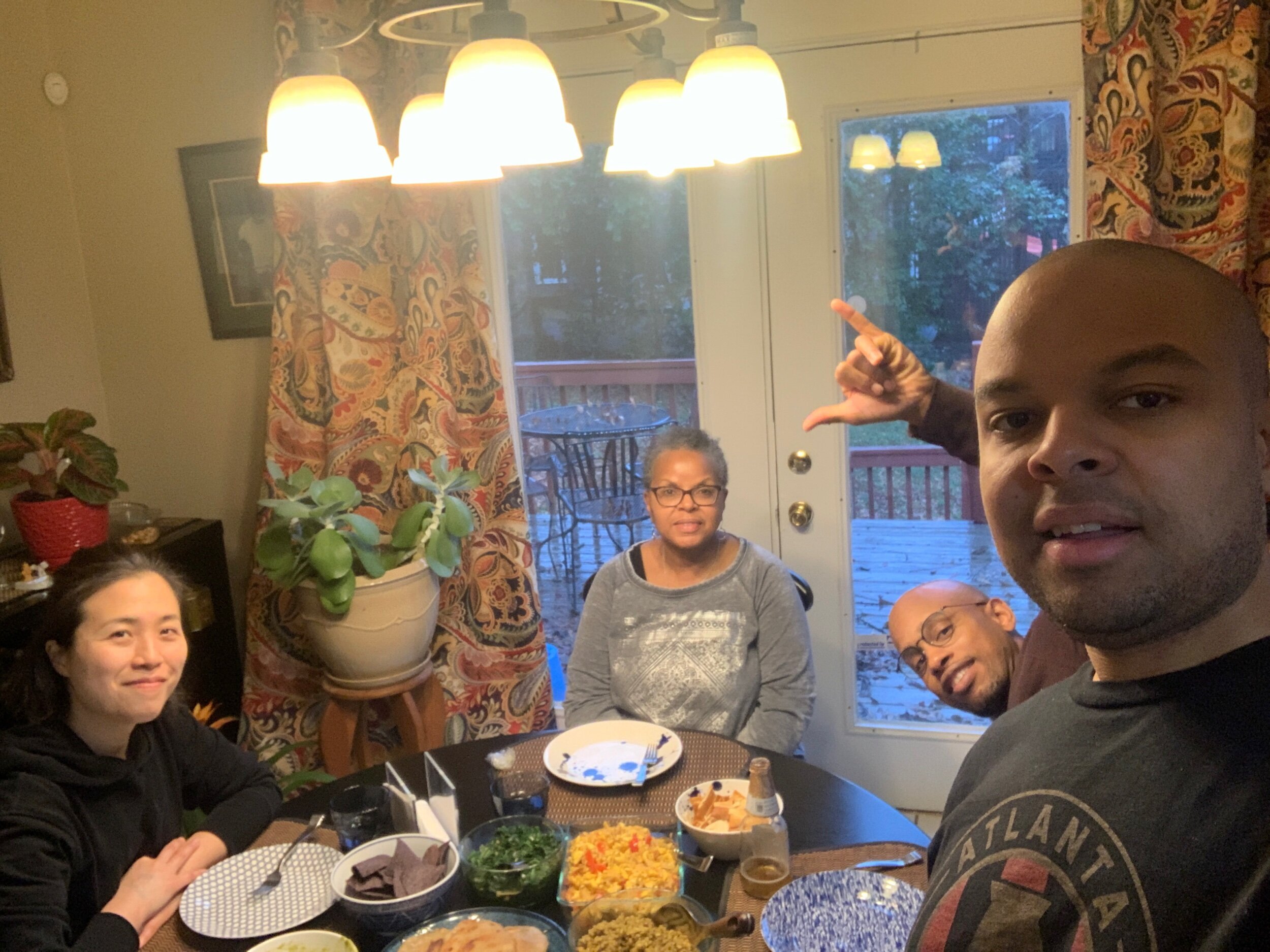Hello!
These posts will be for the DU studio, but I’m leaving it here because why not.
It was good to see everyone Tuesday ! Lot’s of horn in a short period of time. I always find it beneficial to mix it up with other players. Even if no playing happens, I still walk away having learned something about myself. Last week, I got to spend some time with my teacher, Richard Deane.
See?
He even came to my performance of a new piece for horn and string quartet, by Hirofumi Mogi, called In Memory of Perky Pat and the Brahms Horn Trio. The concert went well, and I’m glad I was able to make a former teacher proud. You’ll meet Richard in February when he comes for Konzertstuck.
Last night I played at Carnegie with Jon Batiste. It was fun from an experiential point of view, but not what I’d call an intimate music making experience. He’s really talented (understatement), and the audience had a great time (accurate).
Feeling a little bruised and battered and I think I should probably take a couple days off. But first, big concert Sunday! I hope you all can come. I think I’ll get through it ok. Here’s a piece of advice from your fearless teacher: Have other interests! It’s so important to have ways to get out of the playing headspace, and get off of the emotional rollercoaster that is being a musician. Some days your on top of the world. Some days you’re ready to quit and be a park ranger or something. But music is so rewarding, and you have to remember that the journey is the destination.
下次见


